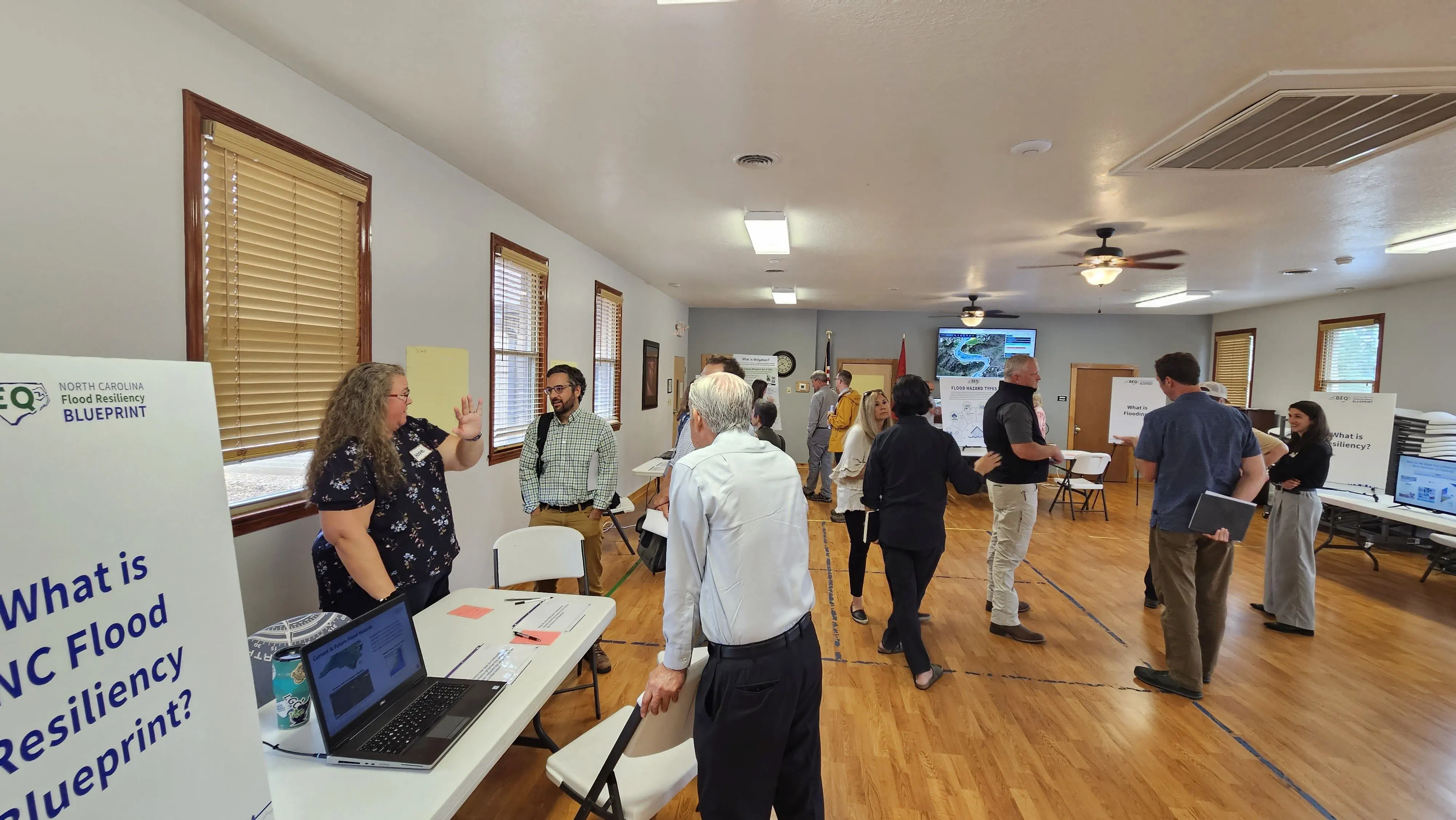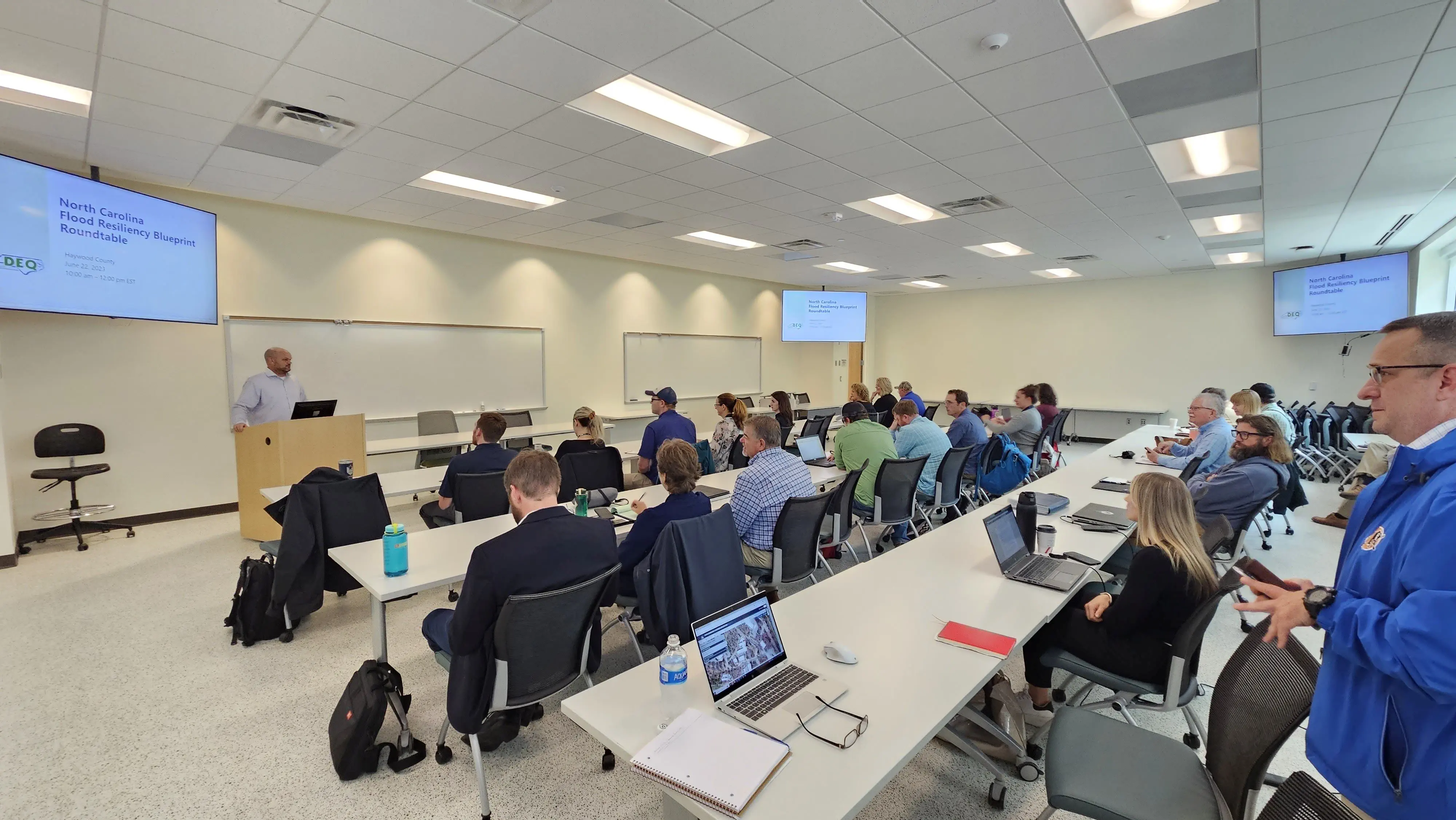Stakeholder Engagement
Stakeholder Engagement
NC Flood Resiliency Blueprint is working diligently to communicate the goals to multiple levels of stakeholders. There is a three tiered approach to stakeholder engagement.

Advisory Groups
Technical Advisory Groups
The NC Flood Resiliency Blueprint's Technical Advisory Groups (TAGs) are made up of subject matter
experts invited to give feedback and advice on all aspects of the Blueprint project. The Blueprint will
benefit from the input of over 150 technical advisors from Federal, State, County, Municipal, and Tribal
governments; non-governmental organizations; and universities.
There are six Technical Advisory Groups (TAGs) to assist with the understanding and needs of the
Blueprint final report. These include:
Principal Advisory Group
A Principal Advisory Group reviews the impact of decisions from the TAGs on policy from multiple perspectives. The Neuse River Basin Regional Advisory Group is the pilot basin group that is focused in implementing at the basin level recommendations from these groups.

Community Centered
Public Q & A Meetings
NC Flood Resiliency Blueprint is working diligently to communicate goals to stakeholders and incorporate community perspective and input throughout the development process. DEQ conducted four public meetings across the state (New Bern, Lumberton, Wilmington, and Haywood County) to kick-off the statewide Flood Resiliency Blueprint. As DEQ develops specific action strategies for a major river basin, DEQ will conduct additional outreach in the basin. The public meetings provided Spanish translation at all events.
Local Leaders’ Meetings
DEQ conducted four local leaders’ meetings across the state (New Bern, Lumberton, Wilmington, and Haywood County). The meetings included an overview of the Flood Resiliency Blueprint project, as well as an overview of Phase I tasks including literature review, existing data, mitigation types, modeling for 2D and/or coastal compound flooding, and potential governance recommendations. This was followed by a roundtable discussion to get input on flood Resilience from the local perspective and a review of flood-related planning efforts in local and surrounding areas.
 June 22 Local Leaders’ Meeting in Haywood County
June 22 Local Leaders’ Meeting in Haywood County
Focus Groups
Digital Focus Groups
DEQ will conduct focus groups with jurisdictions and other end users of the Flood Resiliency Blueprint across the pilot river basin to develop the Neuse Basin Action Strategy. As the development of other action strategies occurs for other river basins, DEQ will conduct additional outreach across those river basins. Additional targeted river basins, other than the Neuse River Basin, are scheduled to begin in 2024. Interaction with the online decision support tool, use cases for the tool, and development of the basin-specific action strategy will be brought to the focus groups. We will learn and modify how tools and basin action strategy will be created based on Focus group feedback.
Beta-Testing
The Decision Support Tool will undergo Beta-Testing in the Neuse River Basin. Beta testers will be identified from Phase I Principal, Technical, and/or Neuse Regional Advisory Group and could include elected and appointed officials, as well as local government staffers such as managers, planners, public works directors, county soil and water employees, and the consultants (including non-governmental organizations) used by local governments.